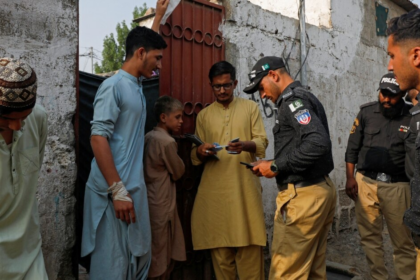RASC News Agency: The Afghanistan Media Support Organization has vehemently denounced the Taliban’s decision to halt the operations of Shamshad Television, one of the country’s leading broadcasters, describing the move as an egregious assault on freedom of expression and the very notion of an independent press. In a statement issued on Saturday, October 18, the organization said the regime’s decision demonstrates, once again, that the Taliban’s intolerance toward independent journalism, critical voices, and public accountability has no limits.
According to the statement, the Taliban’s four-year rule has been marked by an unrelenting war on the free press—enforced through systematic intimidation, the closure of independent media outlets, arbitrary arrests of journalists, and suffocating restrictions on the flow of information. The suspension of Shamshad TV’s broadcasts, the organization added, is not an isolated act but part of a deliberate campaign to silence even the faintest echo of dissent in a nation now starved of truth.
Eyewitnesses confirmed that on Friday evening, October 25, heavily armed members of the Taliban’s intelligence service stormed Shamshad TV’s headquarters in Kabul’s Chaman-e-Hozouri district. Witnesses described scenes of aggression as Taliban agents forcibly entered the building, assaulted several employees, and ordered the immediate suspension of all broadcasting “until further notice.” Staff members said the militants confiscated equipment and threatened journalists with arrest should they attempt to resume operations.
Sources close to the channel told independent Afghanistani outlets in exile that the order for the shutdown came directly from Taliban leader Mullah Hibatullah Akhundzada. Though the regime has not officially confirmed the decision, multiple insiders revealed that the closure was likely triggered by recent programming that criticized Taliban censorship and the suspension of internet access across the country.
Ironically, Shamshad TV—a Pashto-language channel with a vast audience in eastern and southern Afghanistan—was once accused of offering favorable coverage to the Taliban and amplifying ethnolinguistic divisions during the previous government. Yet, even a network previously perceived as sympathetic to the group has not been spared the Taliban’s growing paranoia and intolerance toward any form of unsanctioned speech.
Afghanistani journalists and rights activists have widely condemned the Taliban’s action, describing it as another calculated attempt to erase the last remaining spaces of free expression. “The Taliban’s repression has now reached a stage where even the voices that once echoed their narrative are being silenced,” said one Kabul-based journalist now living in exile. “They fear words more than they fear war.”
The closure of Shamshad TV follows a broader and escalating assault on the media landscape. Since seizing power in 2021, the Taliban have shuttered more than 200 media outlets, detained hundreds of journalists, and turned once-vibrant newsrooms into empty shells under the constant shadow of surveillance and fear. Journalists who remain in the country now work under what experts describe as “total censorship,” where even the slightest deviation from official propaganda is treated as treason.
Analysts warn that the Taliban’s latest move is part of a calculated strategy to impose an information blackout that shields the regime’s failures from public scrutiny. “What we are witnessing in Afghanistan is not governance—it is the architecture of silence,” said an international media rights expert. “By destroying the press, the Taliban aim to rewrite reality itself.”
International watchdogs and human rights organizations have also condemned the move. Reporters Without Borders called the closure of Shamshad TV “another devastating blow to Afghanistan’s dying media freedom,” while the United Nations Assistance Mission in Afghanistan (UNAMA) urged the Taliban to “immediately lift all restrictions on independent journalism and cease the persecution of media professionals.”
Diplomatic missions in Kabul, including the European Union Delegation, issued statements expressing deep concern, noting that the regime’s crackdown on free speech further isolates Afghanistan from the international community. The EU warned that “a society without a free press cannot achieve stability, legitimacy, or trust.”
What remains of Afghanistan’s media landscape today is a hollow echo chamber—a space where every word must serve the regime, and every silence is enforced by fear. The blackout of Shamshad TV is not merely the closure of a single broadcaster; it symbolizes the systematic annihilation of the Afghanistani people’s right to speak, question, and know. Under Taliban rule, truth itself has become an act of defiance.
Would you like me to expand it further by adding a short concluding analysis on how the Taliban’s suppression of media threatens Afghanistan’s long-term social fabric and international recognition?






